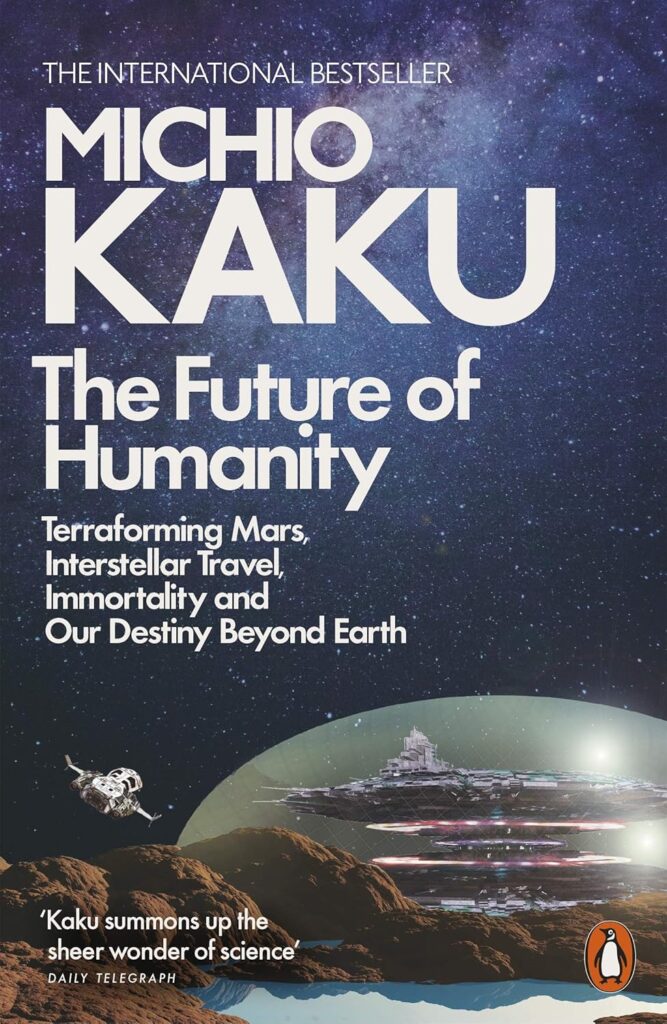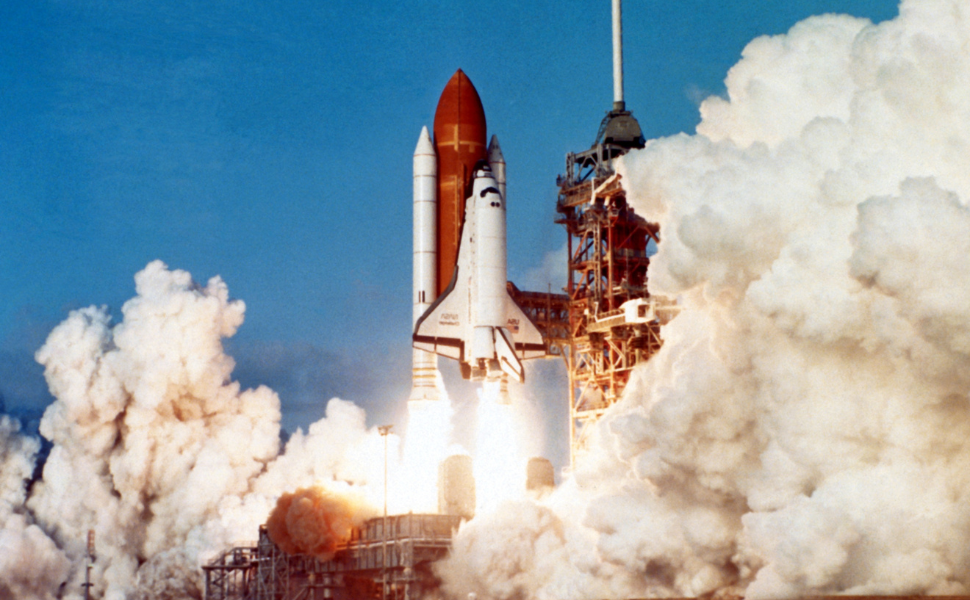What will the future hold for humanity? It’s a question that has intrigued me for as long as I can remember. The idea of exploring other planets, mastering the mysteries of the universe, and even possibly living forever has always been thrilling. When I came across The Future of Humanity by Michio Kaku, it was like someone had opened a door to all those dreams and questions that have lingered in the back of my mind. This book takes you on a journey through time and space, showing what our future could look like if we push the boundaries of science and technology.
1. The Beginning of Our Cosmic Journey
Imagine standing on a distant planet, looking up at a sky filled with unfamiliar stars. That’s where Michio Kaku starts the conversation. He dives straight into the idea that Earth might not always be our only home. With the way things are going—climate change, overpopulation, dwindling resources—it’s becoming increasingly clear that we need to start thinking beyond our little blue planet.
Kaku doesn’t just throw around the idea of leaving Earth; he backs it up with real scientific possibilities. From building self-sustaining colonies on Mars to traveling to nearby stars, the potential paths for humanity are as vast as the universe itself. What I found fascinating was how he makes these far-fetched ideas seem within reach, almost as if packing our bags for Mars might be something we’re doing in the next few decades.

2. The Science of Immortality
Let’s face it, one of the most intriguing parts of any discussion about the future is the idea of living forever. The Future of Humanity doesn’t shy away from this. Kaku delves into the science of immortality, exploring how advancements in genetics, nanotechnology, and artificial intelligence might one day allow us to drastically extend our lifespans—maybe even indefinitely.
I couldn’t help but think about what that would mean for us as a species. Sure, living forever sounds great, but Kaku also brings up the potential downsides. Would immortality come with overpopulation problems? What would happen to our relationships, our ambitions, our societies if death were no longer a factor? It’s a mind-boggling thought experiment that forces you to think about the consequences of such a breakthrough.
But it’s not all science fiction. Kaku introduces readers to real-world research being done right now—like the study of telomeres, the protective caps on our chromosomes that play a crucial role in aging. It’s astonishing to think that the science of immortality is more than just a fantasy; it’s a field of study that’s making strides every day.
3. Beyond Planet Earth: Colonizing the Cosmos
We’ve always been explorers at heart. From the early days of crossing oceans to the idea of crossing the stars, exploration is in our DNA. In The Future of Humanity, Kaku dives deep into the idea of colonizing other worlds. Mars, of course, is the first stop. With current projects like Elon Musk’s SpaceX making headlines, it’s not hard to see why Mars is at the forefront of these discussions.
But Kaku doesn’t stop at Mars. He talks about the possibility of terraforming planets, creating Earth-like conditions on distant worlds. It’s the stuff of science fiction, but with the rapid advancements in technology, it feels like we’re on the cusp of making the impossible possible.
He also brings up the concept of space elevators—structures that could make traveling to space as routine as hopping on a plane. Imagine being able to leave Earth’s atmosphere without the need for a rocket, just a smooth ride up an elevator. It’s a wild idea, but it’s one that Kaku explains with such clarity and enthusiasm that you start to believe it’s within our reach.
As I read, I kept wondering: what would it be like to be part of the generation that sees humanity become a multi-planetary species? It’s an exhilarating thought, but also one that comes with a host of ethical and practical questions. How do we ensure that our expansion into the cosmos doesn’t repeat the mistakes we’ve made here on Earth? Kaku doesn’t shy away from these tough questions, making the book as much a philosophical exploration as a scientific one.
4. The Rise of Artificial Intelligence and the Post-Human Era
No discussion about the future would be complete without touching on artificial intelligence (AI). In Kaku’s vision of the future, AI plays a pivotal role—not just in advancing technology but in potentially becoming our successors. The idea that we might one day create machines that surpass us in intelligence is both thrilling and terrifying.
Kaku explores the potential of AI to help us solve some of humanity’s biggest challenges, from curing diseases to exploring the farthest reaches of space. But there’s also the possibility that AI could evolve beyond our control, leading to a post-human era where machines, not humans, are the dominant force in the universe.
I found this part of the book particularly thought-provoking. It made me question what it means to be human and how we define our place in the universe. If AI can do everything we can, but better, faster, and without the need for sleep or sustenance, where does that leave us? Kaku suggests that we might one day merge with AI, enhancing our own abilities and becoming something more than human. It’s a concept that’s equal parts exciting and unsettling.
5. Ethical Dilemmas and the Human Spirit
What I love about The Future of Humanity is that it’s not just a book about science and technology—it’s a book about what it means to be human. Kaku consistently brings the discussion back to the ethical dilemmas we’ll face as we venture into this new frontier. Whether it’s the question of who gets to live forever or the implications of colonizing other planets, he never lets us forget that these scientific advancements come with serious moral considerations.
As I read through Kaku’s exploration of the future, I couldn’t help but feel a deep sense of awe at the possibilities ahead of us. But I also felt a sense of responsibility. The future of humanity isn’t just about what we can do; it’s about what we should do. How do we ensure that the incredible power we’re on the verge of unlocking is used for the betterment of all, not just a privileged few? How do we balance our drive for exploration and discovery with the need to protect our own planet and its inhabitants?
These are the questions that lingered with me long after I put the book down. Kaku doesn’t provide easy answers, and that’s part of what makes The Future of Humanity so compelling. It’s a call to action—a challenge to think deeply about the future we’re creating and our role in shaping it.
Conclusion: What Will Our Legacy Be?
In reading The Future of Humanity, I found myself not just thinking about the scientific and technological advancements on the horizon, but also about the kind of legacy we want to leave behind. We stand at a pivotal moment in history, with the potential to either soar to new heights or falter under the weight of our own ambitions.
The book invites us to consider not just the possibilities of the future, but the kind of future we want to build. Will we be remembered as the generation that reached for the stars and unlocked the secrets of the universe? Or will we be the ones who let those opportunities slip through our fingers?
As we stand on the brink of this incredible journey, the real question is: what kind of future do we want to create? And are we ready to take the steps necessary to make that future a reality?




